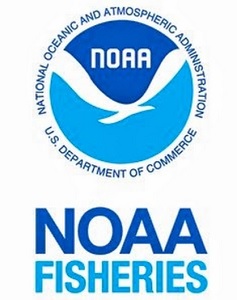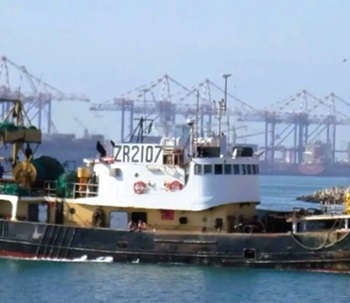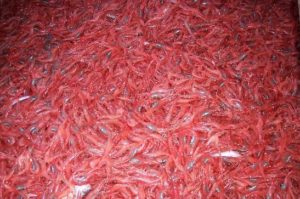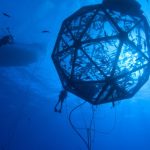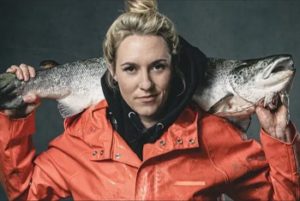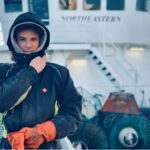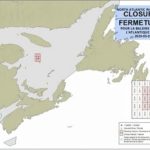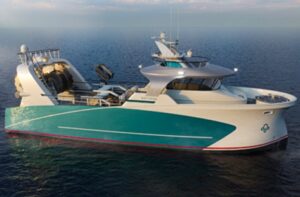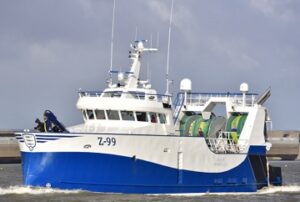Daily Archives: May 21, 2024
Tuna Clipper Sinks Venezuelan Trawler off the Galapagos
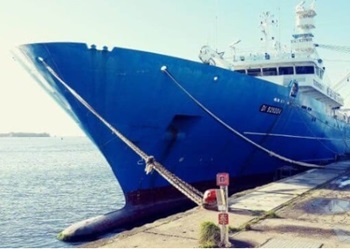 A biologist has gone missing after a tuna clipper hit and sank a fishing trawler off the coast of the Galapagos, according to local media. On the night of May 15, the 53-year-old trawler F/V Canaimawas operating about 240 miles off the coast of San Cristobal in the Galapagos Islands. The Ecuadorian-owned tuna fishing vessel, F/V Ria de Aldan approached from astern, and by the time Canaima attempted to warn her, collision was unavoidable. Ria de Aldan struck the stern of the Canaima, causing the vessel to rapidly sink. The crew abandoned ship onto a tender and escaped. 24 of the 25 crewmembers aboard Canaima were rescued from the water, but one individual – Venezuelan biologist Faustino Riviero, 53 – has gone missing. Video, more, >>CLICK TO READ<< 17:25
A biologist has gone missing after a tuna clipper hit and sank a fishing trawler off the coast of the Galapagos, according to local media. On the night of May 15, the 53-year-old trawler F/V Canaimawas operating about 240 miles off the coast of San Cristobal in the Galapagos Islands. The Ecuadorian-owned tuna fishing vessel, F/V Ria de Aldan approached from astern, and by the time Canaima attempted to warn her, collision was unavoidable. Ria de Aldan struck the stern of the Canaima, causing the vessel to rapidly sink. The crew abandoned ship onto a tender and escaped. 24 of the 25 crewmembers aboard Canaima were rescued from the water, but one individual – Venezuelan biologist Faustino Riviero, 53 – has gone missing. Video, more, >>CLICK TO READ<< 17:25
Fatal accident inquiry determination highlights crew’s brave rescue attempts
 The crew of a local fishing boat did “all that they could” to try to recover a colleague as soon as possible from the sea after he fell overboard, according to the determination of a fatal accident inquiry. Sheriff Ian Cruickshank also paid tribute to the “bravery” of skipper Andrew White after Edison ‘Joseph’ Lacaste fell overboard off the Copious in February 2021. A determination on Lacaste’s fatal accident inquiry, written by Sheriff Cruickshank, was published on Friday. The 45-year-old Philippine national died after falling into the water while carrying out repairs to fishing gear on the twin rigger Copious in the early hours of 18 February 2021. more, >>CLICK TO READ<< 13:22
The crew of a local fishing boat did “all that they could” to try to recover a colleague as soon as possible from the sea after he fell overboard, according to the determination of a fatal accident inquiry. Sheriff Ian Cruickshank also paid tribute to the “bravery” of skipper Andrew White after Edison ‘Joseph’ Lacaste fell overboard off the Copious in February 2021. A determination on Lacaste’s fatal accident inquiry, written by Sheriff Cruickshank, was published on Friday. The 45-year-old Philippine national died after falling into the water while carrying out repairs to fishing gear on the twin rigger Copious in the early hours of 18 February 2021. more, >>CLICK TO READ<< 13:22
Technology Helping Prevent Whale Strikes
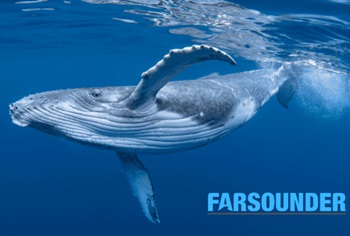 As many as 80 whales are estimated to die each year off the West Coast of the US as a result of ship strikes, and about a third of all Right Whale deaths in the Atlantic are attributed to ship strikes. Sperm Whales in the Mediterranean are also listed as an endangered species, and ship strike is their leading cause of death. Whale avoidance is clearly top of mind for mariners. It is time to explore how currently available technology can help in this endeavor. As the world looks to new technologies to assist in whale avoidance, it is important to ensure there is no impact on the whales and the environment. Likewise, as governmental regulations evolve, operating vessels near whales requires a strong understanding of the rules implemented to protect them. There should be strict adherence to safe practices that coincide with the use of the right technologies. more, >>CLICK TO READ<< 10:42
As many as 80 whales are estimated to die each year off the West Coast of the US as a result of ship strikes, and about a third of all Right Whale deaths in the Atlantic are attributed to ship strikes. Sperm Whales in the Mediterranean are also listed as an endangered species, and ship strike is their leading cause of death. Whale avoidance is clearly top of mind for mariners. It is time to explore how currently available technology can help in this endeavor. As the world looks to new technologies to assist in whale avoidance, it is important to ensure there is no impact on the whales and the environment. Likewise, as governmental regulations evolve, operating vessels near whales requires a strong understanding of the rules implemented to protect them. There should be strict adherence to safe practices that coincide with the use of the right technologies. more, >>CLICK TO READ<< 10:42
N.S. government spends $350,000 in funding on first of its kind simulator for NSCC
 The Nova Scotia government is funding a new fisheries simulator for the NSCC Shelburne Campus which will allow students to practise operating fishing vessels while on land. The simulator features navigation systems for both fishing and aquaculture, making it the first of its kind in Canada. The grant comes from the province’s Department of Advanced Education, which is spending $350,000 on the project. The province says they hope the project will help bring more participation to operations and careers involving fishing vessels, as well as help the fishing sector by bringing in a more highly skilled and experienced workforce. more, >>CLICK TO READ<< 09:23
The Nova Scotia government is funding a new fisheries simulator for the NSCC Shelburne Campus which will allow students to practise operating fishing vessels while on land. The simulator features navigation systems for both fishing and aquaculture, making it the first of its kind in Canada. The grant comes from the province’s Department of Advanced Education, which is spending $350,000 on the project. The province says they hope the project will help bring more participation to operations and careers involving fishing vessels, as well as help the fishing sector by bringing in a more highly skilled and experienced workforce. more, >>CLICK TO READ<< 09:23
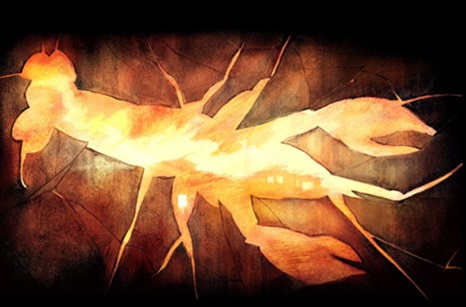
Nova Scotia’s Billion-Dollar Lobster Wars
At the River Café, the Michelin-recommended restaurant on the Brooklyn waterfront where the term “free-range chicken” was coined, the lobster is served butter-poached next to a pool of lemon-grape sauce, to brighten its tender brininess. The chef, Brad Steelman, insists on lobster from the cold waters of Nova Scotia, because this insures a hard shell and robust meat. Not so long ago, good lobster could be found closer to the city. Historically, there were strong harvests as far south as New Jersey. Private-equity firms and seafood conglomerates have swallowed many of North America’s fisheries. But, in Nova Scotia, most lobstermen are independent. But many inshore fishermen have also resisted a recent entrant to the power struggle: the Mi’kmaq, the most populous group of Indigenous people in Atlantic Canada. more, >>CLICK TO READ<< 06:58






